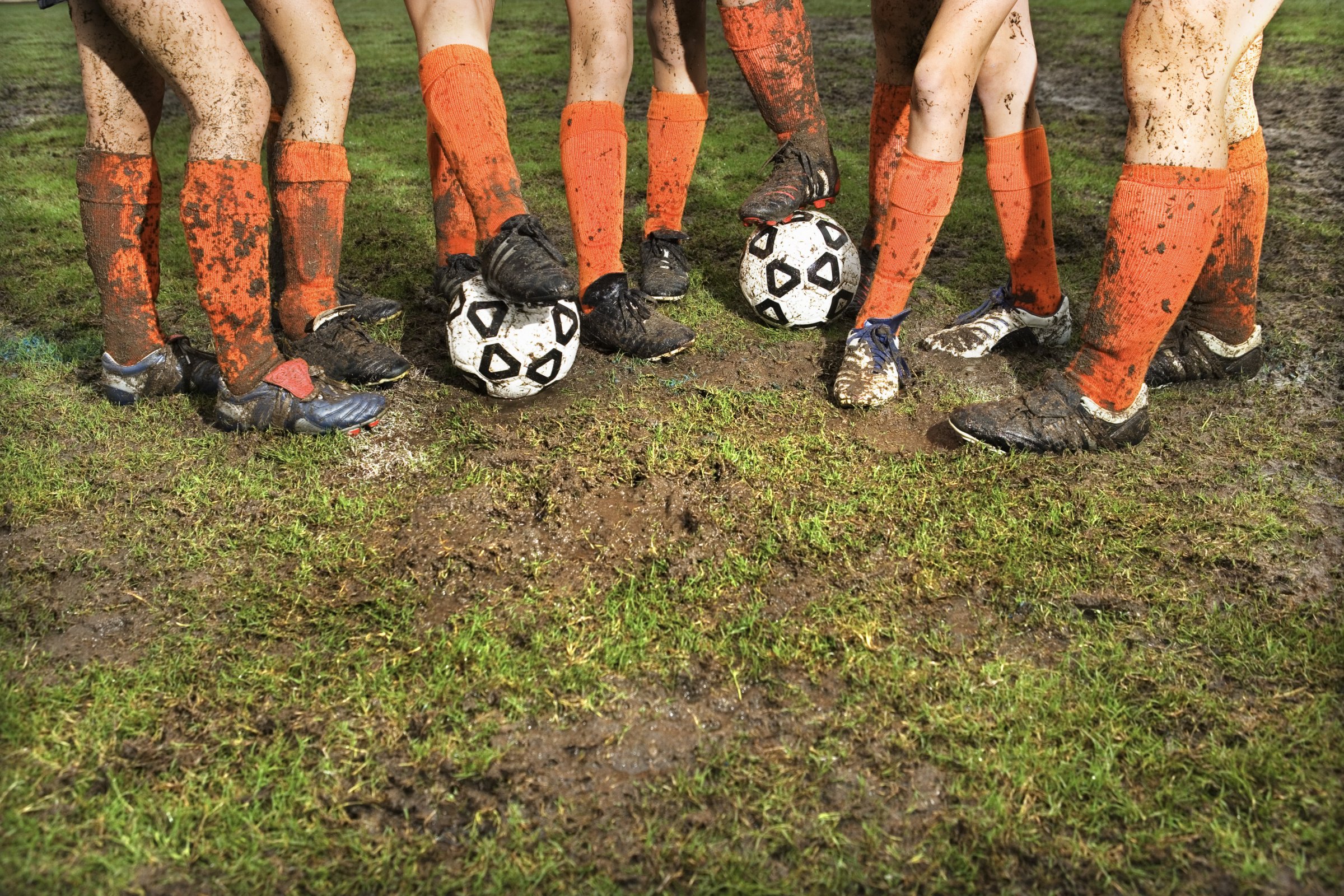
When my twin boys began their first high school lacrosse season last week, I took a few minutes to rewind my mind’s highlight reel to relive my kids’ days playing pee-wee this or that—the high-fives, the hustle plays, and the little moments that only parents can remember.
Even with all the good that can come from watching our kids compete, we sideline-squatters know that the mood of a youth sporting event can morph from pure to toxic in less time than it takes to yell “C’mon, Zebra, stop the home-cooking!”
So when David Epstein, author of The Sports Gene, visited the University of Florida recently as part of our Science Journalist in Residence program, I was anxious to hear him talk about what sports science tells us we get wrong when it comes to youth sports. Epstein spoke to classes, public groups, faculty members and others about the relationship between hardware (our genetics) and software (our training). During Epstein’s visit, I sat down with him to ask about the adjustments that parents, coaches and even our kids can make as they develop as athletes.
For Parents: More Play, Less Pressure
Perhaps because they think that focusing on one sport will get their kids on a college coach’s radar, many parents push for year-round specialization. Besides the risk of overuse injury, that approach also means your child is less likely to find the sport that he or she loves—and is good at. A better strategy: Encouraging your kids to experiment.
“Diversification doesn’t just mean playing multiple sports,” Epstein says, “but it’s also allowing a playful environment where implicit learning happens.” Epstein likes the “learn like a baby” model of sports development. A baby learns language skills by babbling and playing with no fear of failure, he says. Once the early skills are learned implicitly, that’s when you can start teaching the rules of grammar. In today’s sports culture, Epstein says, we’re teaching the grammar before our kids are implicitly learning and playing with basic athletic skills. “What the sports science suggests we’re doing for kids in sports is that we’re doing it backwards,” he says.
Epstein points to UCLA data that shows athletes on college scholarship don’t specialize in one sport until the average age of 15.4, while high school athletes on college club-level teams specialized at the age of 14.2. That data suggests that diversifying is linked to higher skill levels as the athlete ages.
“If a kid is a quick biological maturer, that’s different than them being the next LeBron James,” Epstein says. “The path that most elite athletes travel is the Roger Federer path, his parents forcing him to play basketball, badminton and soccer, not the Tiger path. That’s an exception.”
For Coaches: Clap, Don’t Correct
In one discussion Epstein was having on campus, he mentioned that positive feedback is linked to higher performance. He cited research by sports psychologist Christian Cook in which subjects performed better and were less likely to repeat mistakes when they were given positive feedback (as testosterone increased).
“I don’t know if it’s counterintuitive that positive feedback works, but it’s not the intuitive way for [coaches] to act,” Epstein says, explaining that coaches naturally identify what’s wrong and instruct athletes how to improve.
“If you had to choose between needing feedback when we did something wrong or when we did something right, I’m convinced now it’s when we did something right. And that’s when people don’t give feedback,” he says. “They pay attention to what’s wrong.”
For Kids: Play, Then Think
One trait that seems to be a hallmark for high-level performers: reflection. The athletes who reflect on their performance are able to self-evaluate what they can do better. This is largely based on the work by Marije Elferink-Gemser of the Netherlands, who believes that reflection (while more natural for some kids than others) can be taught, Epstein says. One way: By encouraging young athletes to ask themselves questions that will facilitate that kind of thinking. What did I do well? What didn’t I do well? Who are the people who can help me get there? “[Elferink-Gemser] is moving to saying the single most important role of the coach is facilitating the role of examining weakness and looking at remediating them, in that athletes are orchestrators of their own development, especially as they all get better and better,” Epstein says.
More Must-Reads from TIME
- Why Trump’s Message Worked on Latino Men
- What Trump’s Win Could Mean for Housing
- The 100 Must-Read Books of 2024
- Sleep Doctors Share the 1 Tip That’s Changed Their Lives
- Column: Let’s Bring Back Romance
- What It’s Like to Have Long COVID As a Kid
- FX’s Say Nothing Is the Must-Watch Political Thriller of 2024
- Merle Bombardieri Is Helping People Make the Baby Decision
Contact us at letters@time.com